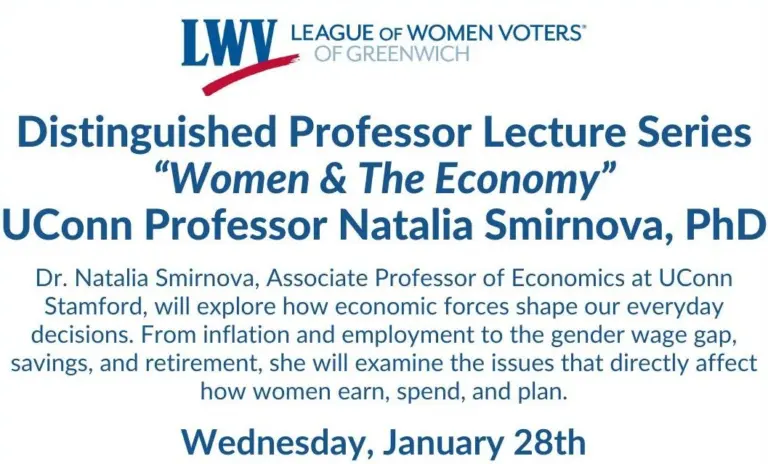By Ben Valentine
We were wandering through Galaxy’s Edge at Disneyland, the billion-dollar Star Wars experience. The immersive details were astonishing. The architecture, the ambient sounds, even the “blue milk” (something I never knew I wanted) created a captivating setting.
For those hours, visitors feel transported to another world, one where they might glimpse a Wookiee or pilot the Millennium Falcon. But eventually the day ends. You exit through the gift shop and remember you’re not in a galaxy far, far away; you’re just in Anaheim.
That feeling of emerging from a beautiful illusion into stark reality may resonate with many of us in a place like Greenwich. We’re surrounded by apparent perfection, manicured landscapes, impressive careers, and nicely curated social media pages. Yet behind closed doors, many of us feel a profound disconnect between the worlds we construct and the realities we face.
Perhaps that’s why spring in Greenwich offers such psychological relief. After our long winters, the sight of crocuses along the Post Road feels almost miraculous. It speaks to our profound human longing for renewal, for things thought dead to somehow live again.
This longing emerges in our fascination with stories of transformation. Marvel movies and Star Wars captivate audiences precisely because they tap into our desire for redemption, for triumph over impossible odds, for making wrong things right.
We instinctively recognize that our world needs mending. We feel it personally in our strained relationships, health concerns, and private disappointments. We see it collectively in ongoing global conflicts and social divisions. Even life in Greenwich doesn’t shield us from these realities; sometimes it just makes them more jarring when they intrude.
Recently, I was reminded of this contrast while reading about a speech given in ancient Athens, a city of wealth and cultural refinement. A Jewish traveler named Paul found himself addressing the intellectual elite at the Areopagus, a setting not unlike a particularly sophisticated cocktail party. In Acts 17, we see how Paul navigated this encounter with some of the most educated minds of his day.
His audience included Epicureans (the ancient equivalent of our modern “you only live once” approach) and Stoics (who emphasized duty, rationality and self-discipline). Despite their philosophical differences, both groups shared one fundamental belief: death is final, and wisdom lies in making peace with that finality.
When Paul began speaking about resurrection, about someone who died and then returned to life, his audience balked. Some dismissed him as a “babbler” (ancient slang for a peddler of fake news?). The notion that death could be overcome seemed absurd to these educated minds, a comforting fairy tale or illusion perhaps, but nothing more.
Their response reminds me of how we often approach life’s deepest questions today. We’re quick to dismiss extraordinary claims as naïve. We pride ourselves on being too educated, too realistic for certain kinds of hope.
Yet what if our skepticism isn’t as rational as we believe? What if the stories that move us most deeply, from ancient myths to modern blockbusters, are popular precisely because they echo a truth we intuitively recognize but struggle to accept?
C.S. Lewis, the renowned Oxford professor, wrestled with this very question. Initially an atheist, Lewis resisted Christianity partly because its central narrative, a divine being who dies and rises again, appeared in many world mythologies. To him, Jesus seemed like just another version of Osiris or Dionysus.
But Lewis’s perspective shifted dramatically after a conversation with his friend J.R.R. Tolkien. What if, Tolkien suggested, the story of Jesus resonated with all those ancient myths not because it was false, but because it was the true version of what humanity had always sensed? What if Jesus was “the myth that became fact”?
This perspective invites us to consider whether Easter represents something more substantial than a pleasant spring tradition of brunches and egg hunts. What if the resurrection of Jesus isn’t just a comforting story but a historical reality with profound implications for how we navigate our lives?
The heart of the Gospel (meaning “good news”) is far more epic than any superhero saga or space adventure. Like those blockbuster films where heroes battle seemingly insurmountable forces of darkness, Jesus entered our broken world to fight the ultimate battle against sin and death, enemies we could never defeat on our own. But unlike fictional heroes, Jesus’ victory through resurrection isn’t just inspiring storytelling; it’s the pivotal moment in human history where death itself was defeated. His triumph means our failures, losses, and brokenness don’t have the final word. Jesus is making all things new, healing the disconnect between who we are inside and who we appear to be, restoring us to wholeness because He loves us. This isn’t just another system of self-improvement; it’s rescue, redemption, and relationship.
As we move through this spring season in Greenwich, I invite you to consider these questions with curiosity. What if Jesus’ resurrection isn’t just a comforting metaphor but the foundation of a more resilient hope, not just in some distant afterlife, but also in our everyday experiences of failure, loss, and disappointment?
Unlike Galaxy’s Edge, where we must exit back into ordinary reality, the resurrection offers entry into a greater reality. What if the most extraordinary story ever told is actually true? And what would that mean for how we live tomorrow?
We’ll be talking about all this at our Good Friday and Easter Sunday services this weekend, both happening at the Hyatt Regency Ballroom in town. We’d love to welcome you.
Ben Valentine is the Senior Pastor of Trinity Church in Greenwich. Discover more at www.trinitychurch.life




